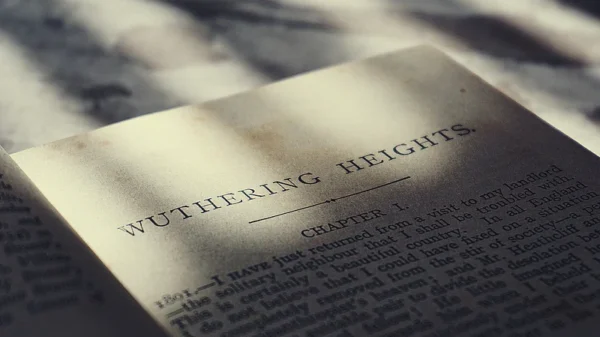Staff Writer Teddy D’Ancona offers a detailed critique of the newly released Joker: Folie à Deux sharing his thoughts on the recent “jukebox musical”.
It’s been hard to ignore the overwhelming negative reception to Todd Phillips’ Joker: Folie à Deux. The ongoing box office bomb is failing both critically and financially, being panned by audiences and critics alike, while grossing a purported $166 million against a $200 million budget. That’s not even taking the cost of advertising into account.
The Opening Act
Like it or not, Todd Phillips’ Joker was a groundbreaking film. In 2019, Marvel were the reigning champions of entertainment, being the most popular and commercially successful franchise on the planet. Marvel’s Avengers: Endgame essentially served as the series finale to a twenty-three film long story, wrapping up the arcs of beloved characters fans had been invested in for over a decade. It truly was the end of an era. And then it kept going. Audiences were fatigued by superheroes and wanted something different that could be told through the vast potential of comic book stories. In October of 2019. that came in the form of Joker.
Joker was far from perfect, often hand holding its audience by blatantly stating its themes, as well as shoehorning in a needless Batman origin story. However its shortcomings were overshadowed by Joaquin Phoenix’s portrayal as Arthur Fleck/The Joker. The film was a smash hit and received a (questionable) amount of award nominations, with Phoenix’s performance earning him an Academy Award for Best Actor, becoming the second actor to win an Oscar for playing the character alongside Heath Ledger. For five long years – until the release of last summer’s Deadpool & Wolverine – Joker was the highest grossing Rated-R film of all time. The film was presented as a self-contained psychological thriller, free from the constraints of any overarching cinematic universe. It left the viewer with their own open-ended interpretation of Arthur’s fate – so surely a sequel would be a bad idea. Right?
However, when Joker’s follow up film was revealed to be a musical featuring Lady Gaga as Harley Quinn – credited as “Harleen Lee Quinzel” – interest was piqued. It goes without saying that Gaga is an outstanding figure in entertainment, in both the music industry and now in her transition to acting. The premise of a musical love story within the bleak universe of Phillips’ franchise sounded like an utterly insane yet admirable gamble. Unfortunately, in execution it’s not enough to warrant any sort of praise.
“All I have are negative thoughts”
Joker: Folie à Deux is a baffling misfire of a film. The choice to make the sequel a “jukebox musical” serves no purpose whatsoever. The reviewer of this film is no musician, but it’s evident the musical numbers are lifeless in both their presentation and rhythm. With the exception of a pair of creative sequences, Arthur and Harleen predominantly break into song mid-scene for no particular reason, divulging nothing to the viewer through the medium. Only one of the tracks featured is entirely original (the titular Folie à Deux), the rest being awkward renditions of existing music.
In a recent interview with Entertainment Weekly, Phillips explained his intention behind this decision, claiming the music was what Arthur’s mother “played around the apartment” during his traumatic childhood. Arthur returns to these songs once more as an escape from his depressing reality, singing them to express his love for Harleen. Yet beyond Phillips comments this parallel is never conveyed, simply being a notion that doesn’t justify the unrelenting mediocrity of the film’s music. The only positive that can be said about the musical numbers is that they grant the viewer necessary breathers between the incredibly dull courtroom drama.
Joker Face
Phillips and Co waste Gaga’s talents as an actress as well as an artist. The promotion of the film is downright misleading, as Lady Gaga is relegated to a supporting character – having a recorded screen time of thirty-three minutes. Rather than being the film’s co-lead, Gaga’s Quinzel is a cardboard cutout of a character as a stand-in for Joker fanatics. Her character’s only purpose is to tell us more about Arthur.
While both being fantastic actors in their own right, Gaga and Phoenix share no chemistry whatsoever. Their characters are only “in love” because the plot demands it. In all fairness, the quality of the script doesn’t give the two much to dig their teeth into, featuring embarrassing lines of dialogue such as “We use music to make us whole. To balance the fractures within ourselves”. Needless to say, the screenplay needed another draft.
The Fool Who Follows Him
The film has further been criticised for its incessant need to recap the plot of Joker, with scene after scene reminding the viewer of a better film they’d rather be watching. Veering slightly into spoiler territory (if you’re one of many people who didn’t see this film), the sequel actually does intriguingly build upon the events of the first film by directly addressing the toxic fandom of Joker. This metafiction is definitely the most interesting aspect of Joker: Folie à Deux, as the film acknowledges and criticises fans who have outright misinterpreted the point of the original film.
With the rise of illiberal nerd culture, there are many online who seem to believe that Arthur’s psychopathic actions were justified in retaliation of “society that abandons” him and “treats him like trash” (a slightly wince worthy line of dialogue from the Joker 2019). This is not limited to Joker, as the likes of characters such as Walter White, Travis Bickle, Patrick Bateman and Tyler Durden have all been misunderstood as rebellious anti-heroes.
It’s clear that part of the sequel’s intent was to reprimand the idolisation of Phoenix’s Joker, as the misled cult of personality that’s been created around the character is embodied in Harleen Quinzel and the mob of crazed supporters outside the courthouse. In theory, this seems like a cause for praise, but much like the 2019 film splutters its presentation. Phillips’ and co-writer Scott Silver cannot be credited purely for their intent, as it’s plainly not worth sitting through the tedious trial of Arthur Fleck, that becomes downright ridiculous by the film’s final act, and hellacious musical numbers to grasp the ideas it clumsily spells out in crayon.
The Last Laugh
Unfortunately, Joker: Folie à Deux is just as dreadful as it’s being made out to to be. There’s an entire dissertation’s worth of criticisms to throw at this film, from its poorly pacing, terrible music, underutilisation of actors, pretentious dialogue and constant self-referentiality. However, most of the film’s faults boil down to its needless existence in the first place. It’s a two and a half hour meandering mess that claims to be self-aware, while being entirely oblivious to its own smug self-indulgence. To put it simply – Joker: Folie à Deux has gotten the negative reception it deserves.


















